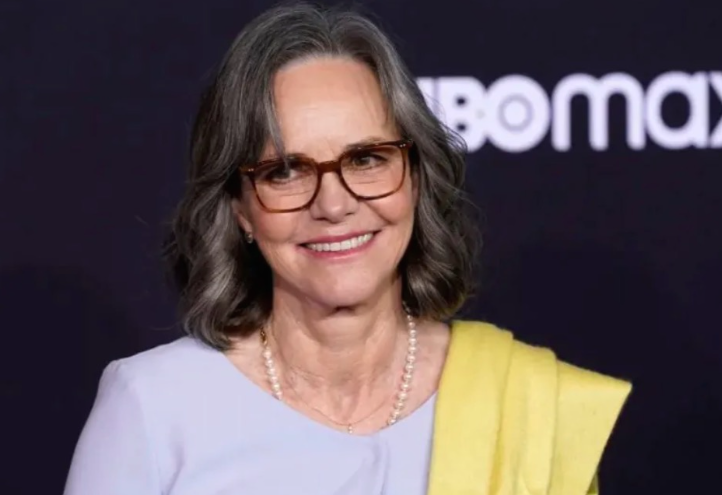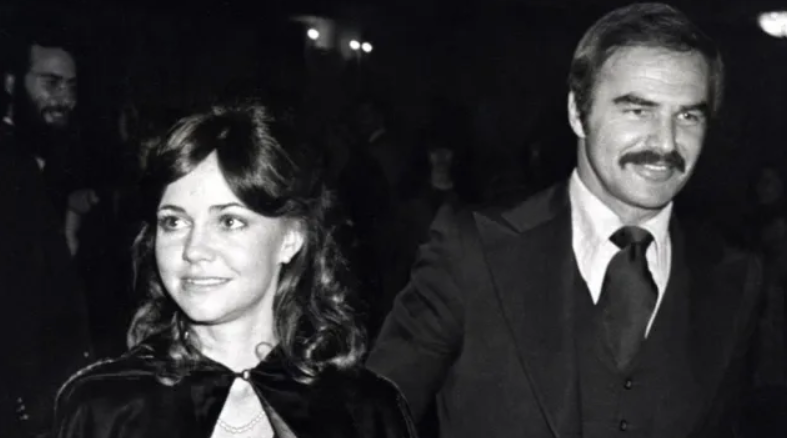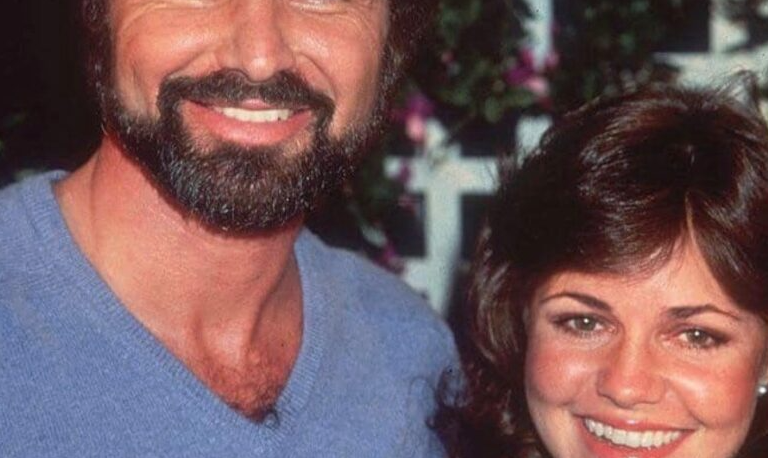In the realm of Tinseltown’s romantic entanglements, few tales rival the intricacies and relentless scrutiny endured by Sally Field and Burt Reynolds. Their saga, whether it be a love story or a narrative of absence, has captivated audiences for generations. Within these lines, we embark on an exploration of their complex bond, unraveling the diverse perspectives held by both Field and Reynolds.
Burt Reynolds, the magnetic luminary of Hollywood, publicly enshrined Sally Field as the paramount love of his life back in 2015, a mere three years prior to his departure from this world. He bared his soul, lamenting the failure to transmute their on-screen chemistry, ignited during the filming of the 1977 classic “Smokey and the Bandit”, into a tangible off-screen romance. Reynolds often bemoaned the chasm left by Field’s absence.
Yet, Sally Field’s narrative diverged starkly from her counterpart’s. In a recent tête-à-tête, she offered unfiltered candor, asserting: “He wasn’t someone I could coexist with. In every aspect, he just wasn’t the right fit for me”. Field, now 75, continued to delineate how Reynolds had crafted a narrative wherein her significance in his life eclipsed reality. She voiced her aversion to navigating this distorted perception.

Field’s memoir, “Fragments of Time”, released in September 2018, arrived in the wake of Reynolds’ passing, illuminating the labyrinthine depths of their connection. Through her prose, Field painted Reynolds as a commanding presence in her life, unafraid to confront the complexities of their relationship. Their on-and-off courtship spanning five years, interspersed with collaboration on four cinematic endeavors, served as a canvas for introspection.
Field, upon reflection, discerned echoes of her past within their dynamic, tracing parallels to her upbringing under the influence of her stepfather, Jock Mahoney. Her decision to chronicle their journey within the memoir, crafted over seven years, stemmed from a conviction that its publication might never come to fruition. Through her candid revelations, Field invited readers into the inner sanctum of her personal struggles, offering a glimpse into the challenges woven into the fabric of her relationship with Reynolds and her trajectory in Hollywood.

Sally Field’s trajectory in Hollywood has been a testament to her indomitable spirit. While she initially soared to prominence with her portrayal of Gidget in 1965, her stint as the Flying Nun from 1967 to 1970 was marred by disappointment. Undeterred, Field pressed on, her sights set on meatier roles in the world of cinema. Throughout her journey, she emphasized the gritty reality of navigating Hollywood’s landscape, where adversity lurked around every corner, demanding resilience in both favorable and adverse circumstances.
Amidst the hurdles, Field’s star continued to ascend, punctuated by memorable performances in cinematic gems like “Norma Rae” (1979) and “Places in the Heart” (1984), each earning her accolades at the Academy Awards. Unafraid to confront the industry’s darker realities, she fearlessly addressed issues of sexual harassment and wage disparities prevalent during her era.

Field’s Oscars acceptance speech for her role in “Places in the Heart” remains a topic of fervent discussion. Her iconic words, “You like me. You really like me”, though often misquoted, bear the weight of her genuine gratitude for recognition as an actress. Despite her clarification, the misinterpretation persists, a testament to the enduring impact of her sincerity.
Through triumphs and tribulations alike, Sally Field’s journey has epitomized resilience, talent, and an unwavering commitment to confronting uncomfortable truths. Her complex relationship with Burt Reynolds offers a poignant glimpse into the personal struggles of two Hollywood luminaries, while her unflinching openness has shone a light on the pervasive challenges within the entertainment industry.
